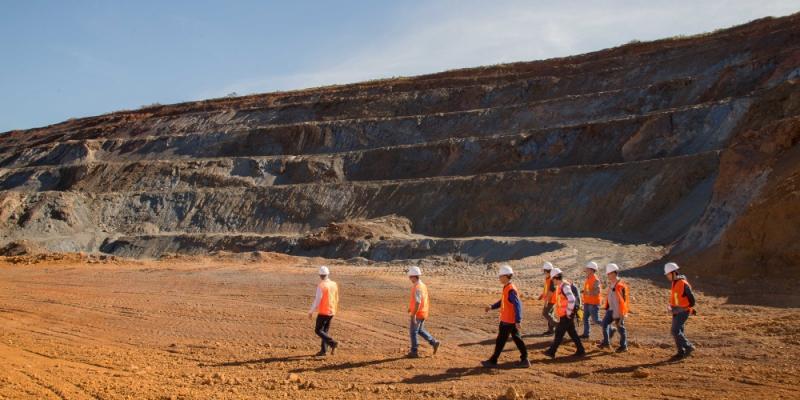Navigating the Depths: Unraveling the Challenges Facing Brazil's Mining Industry
- Brazil | 5 February 2023

Brazil, known for its rich mineral resources and diverse geological landscape, has long been a significant player in the global mining industry. However, like any other mining jurisdiction, Brazil faces a range of challenges that hinder the sector’s progress. In this article, we delve into the obstacles that Brazil’s mining industry must overcome to unlock its full potential. From environmental concerns to regulatory complexities and social issues, addressing these challenges is crucial for sustainable growth and responsible mining practices.
Environmental sustainability is a pressing challenge for Brazil’s mining industry. The extraction of minerals often impacts ecosystems, water resources, and biodiversity. The country’s vast Amazon rainforest and other sensitive areas require stringent environmental protection measures. Ensuring compliance with environmental regulations, implementing responsible mining practices, and promoting land restoration and reclamation are essential for minimizing the industry’s ecological footprint.
Brazil’s mining sector faces a complex regulatory framework and a lengthy permitting process. Inconsistencies in regulations, overlapping jurisdictions, and bureaucratic hurdles create barriers to investment and project development. Streamlining the permitting process, improving transparency, and harmonizing regulations across federal, state, and municipal levels can provide clarity and encourage responsible mining practices.
The lack of adequate infrastructure poses a significant challenge to Brazil’s mining industry. Remote regions with significant mineral potential often lack reliable transportation networks, power supply, and water management systems. Insufficient infrastructure leads to increased project costs, logistical difficulties, and reduced operational efficiency. Investments in infrastructure development, including roads, railways, ports, and energy networks, are crucial for unlocking the full potential of Brazil’s mineral resources.
Mining projects in Brazil often face opposition from local communities and indigenous groups concerned about land rights, cultural preservation, and social impacts. Respecting the rights of indigenous peoples, engaging in meaningful consultation, and ensuring fair compensation for land use are crucial for building trust and fostering positive relationships. Developing sustainable livelihood programs, supporting local businesses, and prioritizing social development initiatives can enhance the industry’s social license to operate.
Brazil struggles with illegal mining activities, particularly in remote areas and indigenous territories. Illegal mining not only undermines environmental protection but also hampers the formal sector’s competitiveness. Strengthening law enforcement, enhancing surveillance, and promoting sustainable alternatives for informal miners are necessary to combat illegal mining and foster a responsible and transparent mining industry.
Embracing technological innovation is vital for Brazil’s mining industry to enhance productivity, safety, and efficiency. The sector should invest in advanced technologies such as automation, artificial intelligence, and digitalization. Additionally, fostering a skilled workforce through training and educational programs will enable the industry to adapt to evolving technological advancements and address the skills gap.
The mining industry is inherently exposed to market volatility and fluctuations in commodity prices. Brazil’s mining sector must navigate these uncertainties and develop strategies to mitigate risks. Diversifying mineral production, focusing on value-added activities, and establishing stable trade partnerships can help reduce the impact of market volatility and secure a sustainable future for the industry.
As Brazil’s mining industry strives for sustainable growth, it must address the challenges that lie ahead. Environmental sustainability, regulatory clarity, infrastructure development, social engagement, combatting illegal mining, technological innovation, and market resilience are key areas that require attention. By proactively addressing these challenges, Brazil can foster responsible mining practices, protect its natural resources, and promote social and economic development. A collaborative approach involving government, industry stakeholders, local communities, and environmental organizations is essential for shaping a mining sector that aligns with Brazil’s long-term goals of sustainable development and responsible resource management.








